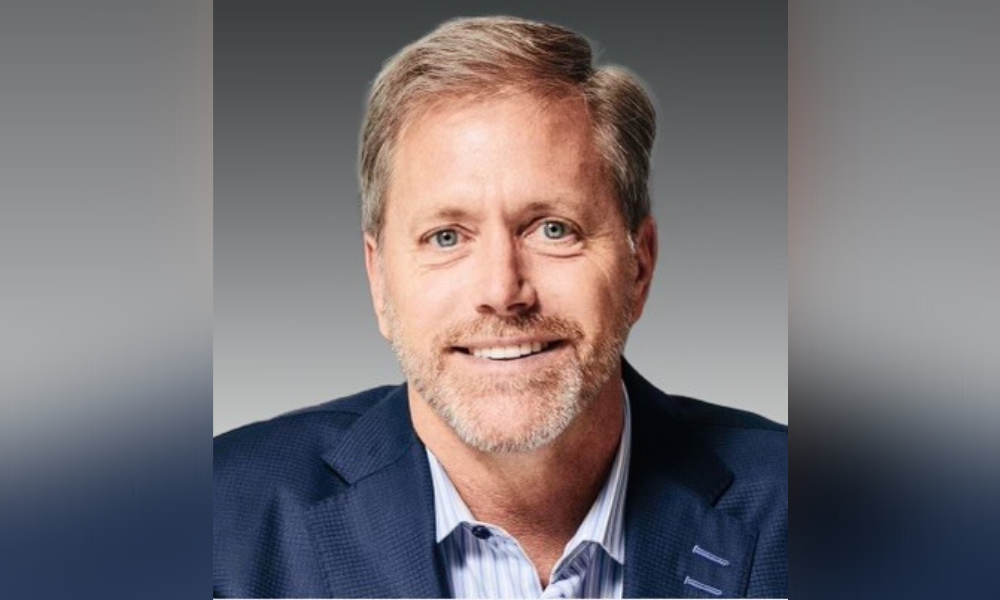
Gartner exec discusses HR generalist vs. centers of excellence, manager effectiveness in remote world

Mike Rude grew up sitting under the learning tree, and he’s been planting similar seeds for nearly 40 years.
With both of his parents being high school teachers, the Chicago suburbanite couldn’t help but develop a thirst for knowledge. Intellectually curious and a strong learner, he earned a master’s in organizational communications from the University of Illinois Urbana-Champaign. During graduate school, he followed in his parents’ footsteps as a teaching assistant before gravitating to training and development.
Intrigued by “teaching within a business context,” he began his career at Baxter International, becoming director of HR planning and development for the medical equipment manufacturer. After nearly a decade, he jumped to global marketing research firm AC Nielsen and became vice president of organizational development.
That’s where a mentor challenged him to reconsider his career path.
“If I didn’t expand into more broader generalist work sooner than later, I may have gotten pigeon-holed in training and development,” Rude told HRD. Luckily, a position opened up at IMS, a division of global analytics provider Dun & Bradstreet, where Rude became vice president of HR.
The future of the HR generalist role has come into question as of late with the emergence of artificial intelligence (AI) and automation.
For instance, global technology giant SAP (whose SAP ERP software is reviewed on our site) has shifted away from relying upon HR generalists to building “centers of excellence” around different functions for its 110,000+ employees. Expect more corporations to follow suit, as “most of the work an HR generalist does can now be solved with an algorithmic platform,” according to Dr. Terri Horton, future of work expert and instructor at UCLA Extension, the continuing education division of the University of California, Los Angeles.
However, Rude has a different perspective.
“Line managers want one point of contact,” he says. “The problem with just focusing on centers of excellence is that you tell the manager they need to know who to go for depending on what they need. But at times the lines are blurred. For example, do I need to go to my staffing team or my training and development team for onboarding?”
“Managers shouldn’t be required to figure that out,” Rude says. “That’s where the HR business partner role still has value and merit because they’re the initial intake and can better figure out where inquiries can best be serviced.”
After serving as HR leader for large corporations like Stryker and Boston Scientific, as well as medium-size firms like Catamaran and most recently, Option Care Health, Rude joined tech research and consulting giant Gartner last year.
As executive partner of the CHRO practice, the HR veteran uses his decades of experience to provide guidance, coaching and advice to fellow HR leaders. Once again, he’s in the teacher role.
“Our clients get to partner with someone who has been there, done that,” Rude says. “I like taking concepts and operationalizing them into how managers can use tools and resources to improve their organization. Training and development is still in my blood. I love facilitating discussions, and at some point, there’s probably an adjunct professor role for me if it becomes available.”
Learning and development is perhaps more important than ever as companies scramble to fill positions in this highly competitive labor market. LinkedIn’s first CHRO has gone so far as to predict “the supply of qualified talent isn’t going to increase.”
“You won’t find qualified candidates at scale any longer. The future of work is the future of learning – you have to become a talent development business,” said Steve Cadigan, a 25+year HR veteran who now advises several California heavyweights, such as Twitter, Cisco, Intel and Salesforce.
The dire need for talent development is just one reason why leader and manager effectiveness is the most frequent top priority among HR leaders for 2023, according to a Gartner survey.
“The workplace dynamics over the last couple years have really put a premium on understanding the role of the manager/leader,” Rude says. “Remote work, in particular, has put more focus on managers being effective at leading a diverse workplace and making sure they have the right skills and orientation for how they’re going to do that.”
In addition to creating healthy workplace environments in the remote/hybrid world, leaders must also learn how to hold employees accountable when they’re in a different state or country. This has led to a greater emphasis on leadership development, which must be delivered in creative ways. With employees all over the word, in-person instructor-led classes are no longer feasible. Rude says that HR leaders must rely upon technology, innovation and bite-size approaches to train managers.
“The frontline manager has more influence and impact on what happens within the business than the CEO does,” Rude says. “Although the CEO sets the direction of the company, the frontline leader drives workplace engagement, retention, development and productivity. Employees have a lot of options, but if you treat them like volunteers – doing things to engage them in their work, communicating more broadly and transparently, and continuing to grow and develop them – they’ll stay and be attracted to your workplace.”